2,3,4,6-Tetra-O-Benzyl-D-Galactopyranose CAS 53081-25-7; 6386-24-9 Assay >98.0% (HPLC)
Ruifu Chemical is the leading manufacturer of 2,3,4,6-Tetra-O-Benzyl-D-Galactopyranose (CAS: 53081-25-7; 6386-24-9) with high quality. Ruifu Chemical has 15 years experience in carbohydrate chemistry. Our R&D center is located in Shanghai and has two factories in China. Ruifu Chemical can provide worldwide delivery, competitive price, excellent service. Purchase carbohydrates, Please contact: alvin@ruifuchem.com
| Chemical Name | 2,3,4,6-Tetra-O-Benzyl-D-Galactopyranose |
| Synonyms | 2,3,4,6-Tetra-O-Benzyl-D-Galactose |
| Stock Status | In Stock, Commercial Production |
| CAS Number | 53081-25-7 |
| Related CAS | 6386-24-9 |
| Molecular Formula | C34H36O6 |
| Molecular Weight | 540.66 g/mol |
| Melting Point | 64.0~69.0℃ |
| Density | 1.22±0.10 g/cm3 |
| Solubility | Easily Soluble in Chloroform. Insoluble in Water |
| Storage Details | -15 to -20℃ |
| COA & MSDS | Available |
| Origin of Product | Shanghai, China |
| Product Categories |
Carbohydrates Sugars |
| Shelf Life | 2 Years When Properly Stored |
| Brand | Ruifu Chemical |
| Items | Specifications | Results |
| Appearance | White or Slightly Yellow Solid or Syrup | Complies |
| Solubility | Insoluble in Water, Easily Soluble in CHCl3 | Complies |
| NMR and MS | Should Comply | Complies |
| Identification | IR and HPLC | Complies |
| Specific Rotation [a]20/D | +8.5° to +13.0° (C=1 in CHCl3) | +11.2° |
| Melting Point | 64.0~69.0℃ | 64.0~67.0℃ |
| Water by Karl Fischer | <0.50% | 0.02% |
| Residue on Ignition | <0.20% | 0.1% |
| TLC | Should be One Spot | One Spot |
| Assay / Analysis Method | >98.0% (HPLC) | 98.5% |
| Conclusion | The product has been tested and complies with the given specifications | |
Package: Bottle, Aluminium foil bag, 20kg/Cardboard Drum, or according to customer's requirement.
Storage Condition: Keep the container tightly closed. Store in a cool, dry (-15 to -20℃) and well-ventilated warehouse away from incompatible substances. Keep away from sunshine; avoid fire, heat sources, moisture.
Shipping: Deliver to worldwide by air, by FedEx / DHL Express. Provide fast and reliable delivery.
How to Purchase? Please contact Dr. Alvin Huang: sales@ruifuchem.com or alvin@ruifuchem.com
15 Years Experience? We have more than 15 years of experience in the manufacture and export of a wide range of high quality pharmaceutical intermediates or fine chemicals.
Main Markets? Sell to domestic market, North America, Europe, India, Korea, Japanese, Australia, etc.
Advantages? Superior quality, affordable price, professional services and technical support, fast delivery.
Quality Assurance? Strict quality control system. Professional equipment for analysis include NMR, LC-MS, GC, HPLC, ICP-MS, UV, IR, OR, K.F, ROI, LOD, MP, Clarity, Solubility, Microbial limit test, etc.
Samples? Most products provide free samples for quality evaluation, shipping cost should be paid by customers.
Factory Audit? Factory audit welcome. Please make an appointment in advance.
MOQ? No MOQ. Small order is acceptable.
Delivery Time? If within stock, three days delivery guaranteed.
Transportation? By Express (FedEx, DHL), by Air, by Sea.
Documents? After sales service: COA, MOA, ROS, MSDS, etc. can be provided.
Custom Synthesis? Can provide custom synthesis services to best fit your research needs.
Payment Terms? Proforma invoice will be sent first after confirmation of order, enclosed our bank information. Payment by T/T (Telex Transfer), PayPal, Western Union, etc.
Hazard Symbols Xi - Irritant
Risk Codes 36/37/38 - Irritating to eyes, respiratory system and skin.
Safety Description S24/25 - Avoid contact with skin and eyes.
S36 - Wear suitable protective clothing.
S26 - In case of contact with eyes, rinse immediately with plenty of water and seek medical advice.
WGK Germany 3
HS Code 2940009090
2,3,4,6-Tetra-O-Benzyl-D-Galactopyranose (CAS: 53081-25-7; 6386-24-9) is a sugar molecule that is commonly used in research applications. It is a non-reducing sugar, meaning that it does not participate in glycolysis, and is therefore not metabolized. It is a derivative of the naturally occurring sugar, galactose, and is used in a variety of scientific applications, including drug delivery, chemical synthesis, and biochemistry.
2,3,4,6-Tetra-O-Benzyl-D-Galactopyranose (CAS: 53081-25-7; 6386-24-9) is used in a variety of scientific research applications. It is commonly used in drug delivery systems, as it can be used to attach drugs to a sugar molecule, allowing for more efficient delivery of the drug to the target cells. It is also used in chemical synthesis, as it can be used to modify existing compounds, or to synthesize new compounds. In addition, it is used in biochemistry, as it can be used to study the structure and function of proteins, as well as to study the metabolism of sugars.
2,3,4,6-Tetra-O-Benzyl-D-Galactopyranose (CAS: 53081-25-7; 6386-24-9) is a non-reducing sugar, meaning that it does not participate in glycolysis, and is therefore not metabolized. It is, however, able to interact with proteins, and can act as a ligand, binding to specific proteins and affecting their activity. This can be used in drug delivery systems, as it can be used to attach drugs to a sugar molecule, allowing for more efficient delivery of the drug to the target cells.
The main advantage of using 2,3,4,6-Tetra-O-Benzyl-D-Galactopyranose (CAS: 53081-25-7; 6386-24-9) in lab experiments is its non-metabolizable nature, which allows it to be used in a variety of applications without being affected by metabolism. However, 2,3,4,6-Tetra-O-Benzyl-D-Galactopyranose is important to note that it is a relatively large molecule, and therefore may have difficulty crossing cell membranes. In addition, it is relatively expensive, and therefore may not be suitable for large-scale experiments.
There are a number of potential future directions for the use of 2,3,4,6-Tetra-O-Benzyl-D-Galactopyranose (CAS: 53081-25-7; 6386-24-9). One potential direction is the use of the sugar as a drug delivery system, as it can be used to attach drugs to a sugar molecule, allowing for more efficient delivery of the drug to the target cells. Another potential direction is the use of the sugar in chemical synthesis, as it can be used to modify existing compounds, or to synthesize new compounds. Additionally, it could be used in biochemistry, as it can be used to study the structure and function of proteins, as well as to study the metabolism of sugars. Finally, it could be used in medical imaging, as it can be used to label specific proteins or molecules, allowing them to be tracked and monitored.
-
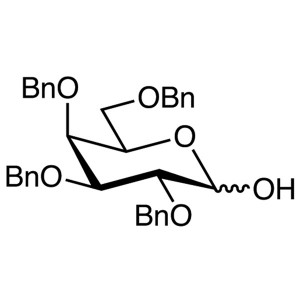
2,3,4,6-Tetra-O-Benzyl-D-Galactopyranose CAS 53...
-
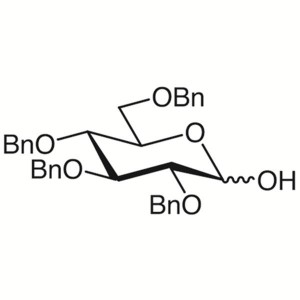
2,3,4,6-Tetra-O-Benzyl-D-Glucopyranose CAS 4132...
-
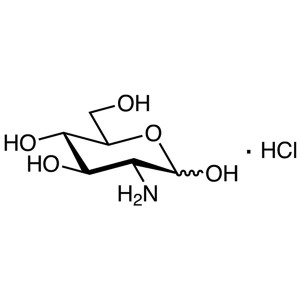
D-(+)-Glucosamine Hydrochloride CAS 66-84-2 Ass...
-
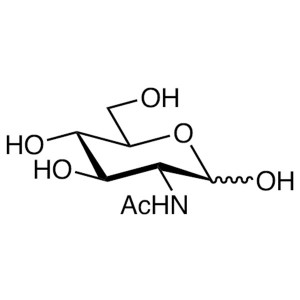
N-Acetyl-D-Glucosamine CAS 7512-17-6 Assay 98.0...
-
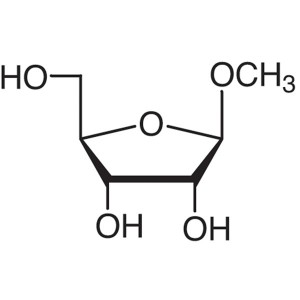
Methyl β-D-Ribofuranoside CAS 7473-45-2 Assay >...
-
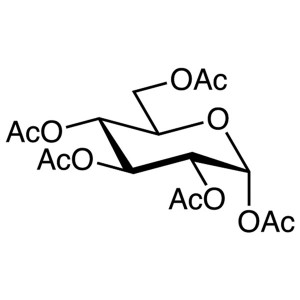
α-D-Glucose Pentaacetate CAS 604-68-2 Assay >98...
-
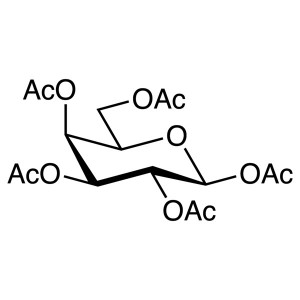
β-D-Galactose Pentaacetate CAS 4163-60-4 Assay ...
-
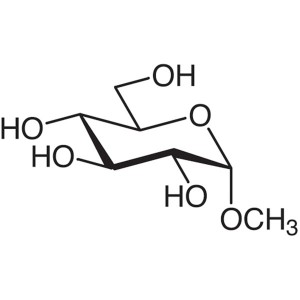
Methyl α-D-Glucopyranoside CAS 97-30-3 Assay >9...
-
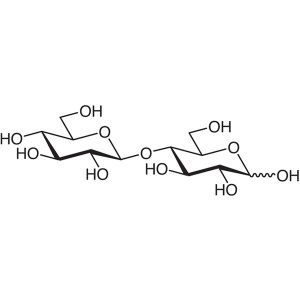
D-(+)-Cellobiose CAS 528-50-7 Assay >98.0% (HPLC)
-
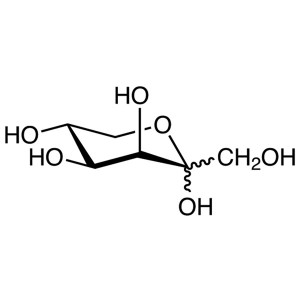
D-Tagatose CAS 87-81-0 Assay >99.0% (HPLC) Factory
-
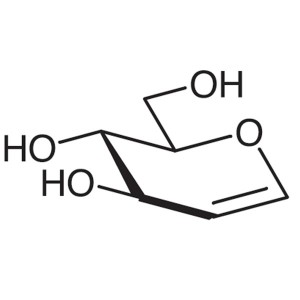
D-Glucal CAS 13265-84-4 Assay >96.0% (HPLC) Fac...
-
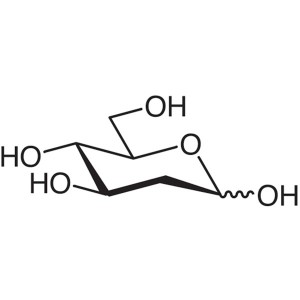
2-Deoxy-D-Glucose CAS 154-17-6 Assay >98.5% (HP...
-
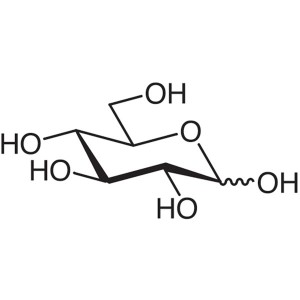
D-(+)-Glucose Anhydrous CAS 50-99-7 Assay ≥99.5...
-
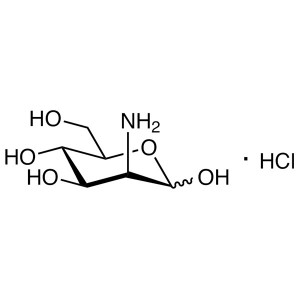
D-Mannosamine Hydrochloride CAS 5505-63-5 Assay...
-
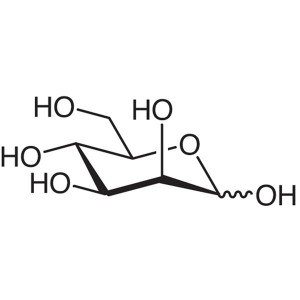
D-(+)-Mannose CAS 3458-28-4 Assay >99.0% (HPLC)...
-
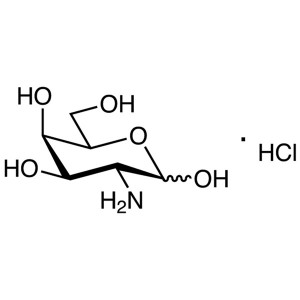
D-(+)-Galactosamine Hydrochloride CAS 1772-03-8...

